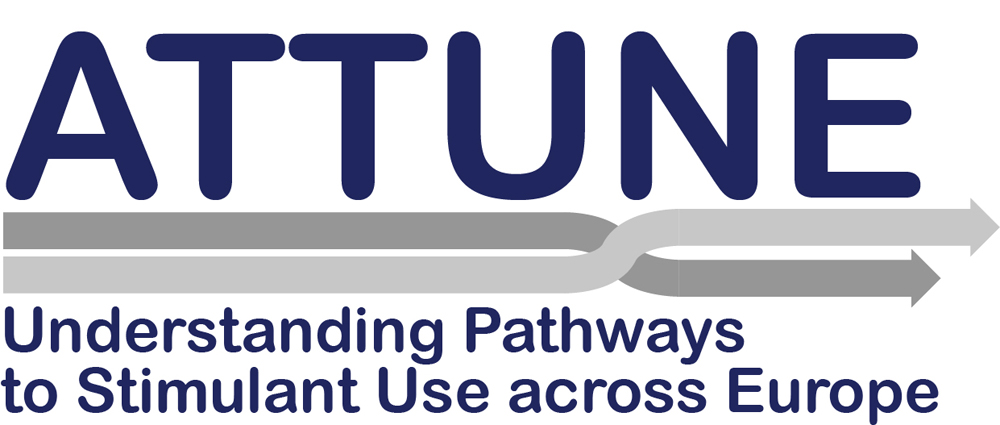UK Disability History Month runs from 18th November to 18th December and is a celebration of the history, achievements, and contributions of people with disabilities in the UK. The PHSI EDI committee have invited our colleagues Hannah Merrick, Lindsay Pennington, Niina Kolehmainen, Liam Spencer and Ruth McGovern to share their experiences of working on research relating to disability.
EMPoWER – Early Mobility and Powered Wheelchair Evidence Review
I worked with PHSI colleagues Dawn Craig, Fiona Beyer and Louise Tanner on EMPoWER funded by NIHR HTA to investigate whether providing powered mobility for very young children provides more benefits than the current practice of waiting until children are 5 years or older. The project was a broad collaboration of academics from Newcastle and Bangor, young people using powered mobility, and an international advisor board. We reviewed a wider range of published evidence from case studies to randomised controlled trials and to qualitative studies, and found that providing powered mobility for young children is likely to have many benefits, to be safe, and to be acceptable to families. The young people co-leading the project with us developed short videos of the findings – we’d love you to view them!
Video 1. Solomon the Adventurer
Video 2. Aimee’s TV Debate on Safety vs Risks
Video 3. Ria, Freedom and Risk Assessments
Video 4. Hols, independence and autonomy
Involving Disabled Young People in Research
During the Covid-19 pandemic, the NHS faced an unprecedented crisis. In response, vital services for disabled children and young people were delayed, deprioritised, or closed. A national campaign by the Disabled Children’s Partnership has highlighted the challenges families of disabled children have faced because of this. In their most recent report, Then There was Silence, it was highlighted how families felt isolated, abandoned and not listened to.


A new PHSI project, Recovery, Renewal and Reset of Services to Disabled Children, led by Dr Lindsay Pennington, started in September 2021. The project aims to learn from the experiences of children and young people (CYP) and their families during the pandemic, using their voices to inform practical policy solutions for the recovery of services and to plan for future emergencies. A key aspect of this project is the Patient and Public Involvement (PPI) work, to ensure the final recommendations reflect the needs and priorities of CYP and parent-carers.
Involving parent carers and young people has been part of the process from the outset. During the development of the project, the management team had consulted with chairs of local Parent Carer Networks in the National Network of Parent Carer Forums and engaged with an active network of practitioners that spans education, health, and social care through The Council for Disabled Children. The parent carers and support organisations have strongly supported the need for the research and have been involved in the design of the study.
Embedding disabled young people and their families into the research team and work

As one of the research associates on the project, one of the first priorities for me was setting up the parent-carer advisory group and the young people’s advisory group. Lucky for me, the project management group includes experts in carrying out PPI work, who can advise us, offer training, and help recruit parent-carers and young people to the groups. We were able to set up and run our first parent-carer advisory group quickly. The group was run online, meaning we were able to include parent carers from different areas across England. We ran the session in the evening at the convenience of the parent carers. We received some helpful feedback about the interview topics and as a result of the session an interview distress protocol was put in place to allow the researchers to respond appropriately to the emotions and distress that may be expressed by parent carers.
Setting up the young people’s advisory group has been more challenging. Recruiting from schools when they have been busy settling children back into school has been difficult. While working online was successful for the parent carer group and has been helpful for young people’s participation in other areas, working online still comes with access challenges for some disabled children and young people. We have been able to organise one group and had a great first meeting with four young people, visiting them at their school. Preparation was key! Lots of planning was done to make sure the young people could participate in the group. We met with the school staff who were helping to facilitate the group and they ran a preparation session with the young people prior to the meeting. This all led to an informative, engaging, and fun meeting. The young people really helped us in making our information sheets clear and accessible and had some great practical and innovative suggestions on how we can make online interviewing easier for young people and different ways young people could participate in the research if an interview is not possible.
Throughout the project we plan to keep building up membership to the parent-carer and young people advisory groups and regularly meet with them at key stages. The advisory groups have decided how they will communicate across the project (e.g., through a Facebook group, by email). We are also using the guidelines by NIHR INVOLVE, ensuring all members are appropriately compensated for their involvement.
Lessons learnt so far from this experience of including disabled children and young people in research
Plan, plan, plan: seek advice and help from others with experience and allow young people to prepare for the session.
Be open to being challenged about what will and won’t work: be open to hearing new ideas and being questioned about your chosen approach. And open to making the necessary changes!
Seek feedback from participants: did the group work well for the young people? What would help next time?
What next?
Interviews with parent carers and children and young people will be beginning in the new year. We will be meeting with our advisory groups again to discuss the findings and our interpretations of the results. Our advisory groups will also be an integral part of helping design our national Delphi survey, which will go out to parent carers, young people and professionals to find out their views on draft recommendations and agree key-guidance for policy makers.
More details about the research team and the stages of the research project can be found here.
Mental Health: a Hidden Disability
One of the themes for Disability History Month 2021 is ‘hidden disabilities’. Under the Equality Act 2020, a disability is defined as when a person has a physical or mental impairment that has a substantial, adverse, and long-term effect on their ability to carry out normal day-to-day activities. A mental health condition is considered a disability if it has a long-term effect on a person’s normal day-to-day activities. There are many different types of mental health condition which can lead to a disability, including dementia, depression, bipolar disorder, obsessive compulsive disorder, and schizophrenia.
Much of our joint work focuses upon mental health, substance use, and early and preventative interventions, particularly in relation to children and families. So, for Disability History Month, we wanted to share with you some of our current and relevant research projects.
Our National Institute for Health Research (NIHR) Public Health Practice Evaluation Scheme (PHPES) funded project, is an evaluation of the Best Start in Life Alliance in South Tyneside. Children and families in South Tyneside have high levels of need, with some children and families being particularly disadvantaged. The practice members of our team worked with local people to develop a new ‘Alliancing’ approach to helping children and families. This approach: brings together the different professionals that support children and families into one team; identifies key people in schools and other settings to help children who may have mental health difficulties; and includes trained young people who want to volunteer to help their peers to live healthier lives. We want to know if this new approach makes a difference for children and families. To find this out, we are working closely with children and families who live in South Tyneside and the people who provide services, undertaking qualitative and quantitative data collection.
Substance abuse may sharply increase symptoms of mental illness or even trigger new symptoms. The mixed-methods European ‘ATTUNE’ study aimed to address a gap in knowledge on what shapes ATS use across the life-course; how to prevent and treat harmful ATS use and what influences different trajectories of consumption through individuals’ lives. A recent publication from this study, reports on a sub-sample of ATTUNE qualitative data collected from participants in the North East of England, and aimed to specifically explore individual experiences of, and perspectives on the relationship between mental health and ATS consumption. The findings help to develop understanding around the complex and bi-directional relationship between ATS use and mental health. Many ATS users lead chaotic lives and engage in multiple risk behaviours, however there is a need to better understand and conceptualise the dynamic interaction between different individual, social, environment and cultural factors that determine individuals’ mental health and substance use. There is no ‘one size fits all’ approach to prevention and treatment, and the findings from this paper highlight the need for more joined-up, tailored and holistic approaches to intervention development.

A project led by SPHR colleagues at LiLac (Liverpool and Lancaster Universities) is aiming to understand the impact of anti-homophobic, bi-phobic and trans-phobic (HBT) bullying programmes on LGBTQ+ young people’s mental health in England. In 2020, the Government Equalities Office withdrew funding of £4million for school programmes aimed at tackling HBT-bullying. This decision is likely to lead to negative consequences for LGBTQ+ young people. Young people who identify as LGBTQ+ are more likely to face bullying and social rejection in education settings such as schools. As a result, they are likely to develop poor mental health compared to heterosexual peers. COVID-19 may cause additional concerns for LGBTQ+ young people as they may not be ‘out’ to their families or live with individuals who are unsupportive of LGBTQ+ identities. A small body of international research has shown a direct link between LGBTQ+ anti-bullying projects and improvements in the mental health of young people who identify as LGBTQ+, however, this has not been explored in the UK. The Creating LGBT+ Affirming School Environments (CLASS) research project is working closely with schools, young people, and third sector organisations to identify programmes with the potential to improve LGBTQ+ young people’s mental health.
| Mental health problems constitute an increasing amount of the burden of disease worldwide, and have an impact on all of us, either directly or indirectly. Therefore, in 2019, Public Health England made mental health one of its priority areas in their 2020-2025 Strategy. For many, mental health issues have been exacerbated due to the COVID-19 pandemic, and in April 2021 the Government produced a COVID-19 mental health and wellbeing recovery action plan. Here at the Population Health Sciences Institute, we will continue to work with policy and practice partners, and the public, to ensure that mental health is a key component of our research, and endeavour to improve the care and outcomes of people living with these conditions. |






